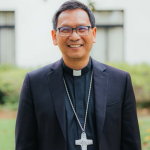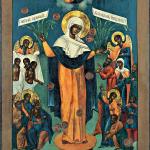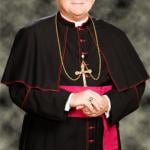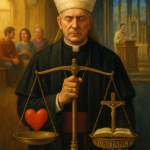Last updated on: November 9, 2014 at 2:27 pm
By
CNA Daily News
Vatican City, Nov 9, 2014 / 07:27 am (CNA/EWTN News).- On the 25th anniversary of the fall of the Berlin Wall, Pope Francis said that it only happened through a long, painful struggle, and warned that there are still many walls that divide the world today. “Wherever there is a wall, there is a closed heart. We need bridges, not walls!” the Pope voiced to those present in St. Peter’s Square for his Nov. 9 Angelus address. He recalled how for many years the Berlin Wall had cut the city in two as a sign of the “ideological division” not only of Europe, but of the whole world. When the Wall fell it happened suddenly, the pontiff observed, saying that although it happened fast, it was only made possible “by the long and arduous efforts of many people who fought, prayed and struggled for this, some even sacrificing their life.” Among those who played a key role by working and praying tirelessly for peace and unity was St Pope John Paul II, he noted, and encouraged those present to work together in building and spreading a culture of encounter. Constructed in 1961, the Berlin Wall was a large concrete barrier built by the German Democratic Republic that divided West Berlin from East Germany and East Berlin. Built to stop people fleeing from communist East Germany to the West, the Wall’s fall in 1989 became a powerful symbol of the end of the Cold War. Within a year of tearing the Wall down, Germany – which was divided after its defeat in World War Two – was once again reunited. The Pope explained that in order to foster unity rather than division, we need a culture “capable of tearing down all the walls that still divide the world, and (that) it will not happen again that innocent people are persecuted and even killed because of their beliefs and of their religion.” In his address the Roman Pontiff also pointed to the day’s feast of the dedication of Rome’s Basilica of St. John Lateran. Built under Pope Melchiade in the early 300s, the basilica is the oldest Christian church in the world, and serves as Rome’s cathedral. He referred to how the Lateran basilica is often referred to in tradition as the “mother of all the churches of the city and the world,” saying that the term “mother” refers to the work of the Holy Spirit who is manifested there, rather than the building itself. Each time the dedication of a church is celebrated, we are reminded of the essential truth that the material structure is in fact a sign of the Church living and working throughout history, the Bishop of Rome explained. In the day’s Gospel, Jesus reveals the “shocking truth (that) the temple of God is not only the building made of bricks, but it is his body, made up of living stones,” the Pope observed, noting how each person automatically becomes another living stone in this spiritual building through their baptism. The spiritual building, which is the Church’s community of men and women sanctified by the death and resurrection of Christ, calls on each baptized person to live the faith they receive coherently in their daily lives, the Pope continued. “And it's not easy, we all know it, this coherence in life between faith and witness; but we need to go forward and make this daily coherence in our lives,” he said, explaining that a Christian is not known for what he says so much as what he does. It is the Holy Spirit who gives us the grace to live this coherence, the pontiff noted, saying that we should ask for this gift in order to both live the faith courageously and bear witness to charity, which are not separate things, but rather go together. When meditating on the dedication of the Lateran basilica we also reflect on the communion of all churches throughout the world, he said, which motivates us commit ourselves to overcoming all “barriers of enmity and indifference.” By making this commitment, we also commit ourselves “to build bridges of understanding and of dialogue, in order to make the whole world a family of peoples reconciled with each other, brotherly and harmonious,” the pontiff observed. He concluded by pointing out how the Church herself is a sign of anticipation of this reconciliation through her message of hope and witness to the Gospel. Read more















